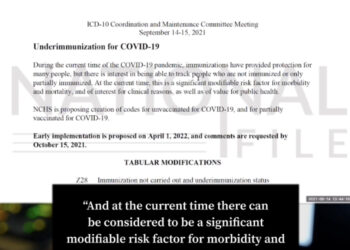Last Updated on January 5, 2021
In a move that further demonstrates their determination to move past any challenges brought before the joint session of Congress on January 6, the majority leadership in both chambers of Congress approved rules outlining the procedures for counting the Electoral College votes.
House Speaker Nancy Pelosi (D-CA), and Senate Majority Leader Mitch McConnell (R-KY), allowed the rules – that will govern both chambers during the proceedings – to be adopted without a recorded vote, opting instead to pass the motion by voice vote.
Adopting measures by “voice vote” means that those voting members in attendance do not have their individual votes recorded, thus providing political cover for unpopular measures that are passed.
The measure, introduced by McConnell, reiterates that the joint session will meet on January 6, and that Vice President Mike Pence, the President of the Senate, will preside.
Pence will open “all the certificates and papers purporting to be certificates of the electoral votes,” the adopted rules read. This verbiage provides a dubious nod to what many believe to be legitimately advanced competing elector slates from seven states.
The certificates and documents will be opened, presented, and executed in alphabetical order. It is at this time that both Senators and Congressmen will voice their contest to the slates from the battleground states in question.
Wow!! Congress Approves Rules for Wednesday's Vote on Electoral College Vote Count Claiming Majorities In Both Chambers to Uphold a Challenge via @gatewaypundit https://t.co/1SKPrrwlwi
— The Gateway Pundit (@gatewaypundit) January 4, 2021
At this point the joint session will withdraw to their respective chambers for a two-hour debate and votes in each chamber. A majority vote from both the House and the Senate is required for a challenge to be upheld under the rules.
With the abdication of fidelity to their political parties, their party’s President, and their constitutional duties to protect the election process from fraud, several Republican Senators and US Representatives will essentially cede the election to Democrat presidential hopeful Joe Biden in voting against the challenges.
In the Senate, those who will stand against President Trump include: Mitch McConnell (KY), John Thune (SD), Susan Collin (ME), Lisa Murkowski (AK), Pat Toomey (PA), John Hoeven (ND), Kevin Cramer (ND), Shelley Moore Capito (WV), Rob Portman (OH), Lindsey Graham (SC) and Tom Cotton (AR), John Cornyn (TX), Bill Cassidy (LA), Roy Blount (MO), and Mitt Romney (UT). This list is growing by the hour.
Although the House boasts over an estimated 140 Republican Representatives who will challenge the vote fraud, ballot tampering, and vote tabulation irregularities in each of the contested battleground states, there are several GOP members of the House who will join their Senate colleagues in opposition to any contest. They include: Tom McClintock (CA), Chip Roy (TX), Ken Buck (CO), Kelly Armstrong (ND), Mike Gallagher (WI), and Nancy Mace (SC), to name but a few.
It's mostly academic, since McConnell/Pelosi are poised to adopt the traditional procedures. But there's little that requires Congress to simply carbon copy the exact same processes — including for challenges — that have been adopted for generations.https://t.co/zdJP5OxiJq
— Kyle Cheney (@kyledcheney) December 30, 2020
President Trump’s last best hope of thwarting the results of a deeply flawed election rests in Vice President Mike Pence.
In the event that the Senate does vote to contest the results in the battleground states in question – and assuming the Democrat controlled House votes to overrule the challenges, Pence, as President of the Senate, could offer up a tie breaking vote sending the election to a vote of delegations in the US House.
Pence can also, per Constitution, refuse to acknowledge elector slates from states where two sets of electors have emerged. Should this happen – and should Biden’s Electoral College total fall below 270, again, the election would be sent to the US House for a vote of delegations.
After the voice vote that attempted to codify a fast track to a Biden presidency, Pelosi wrote in a letter to her colleagues that objections will be heard but, at the end of the day, Biden “will be officially declared the next president.”
“On Monday, we will have a clearer picture of how many state votes will be subject to an objection. Our choice is not to use the forum to debate the presidency of Donald Trump,” she added.



















